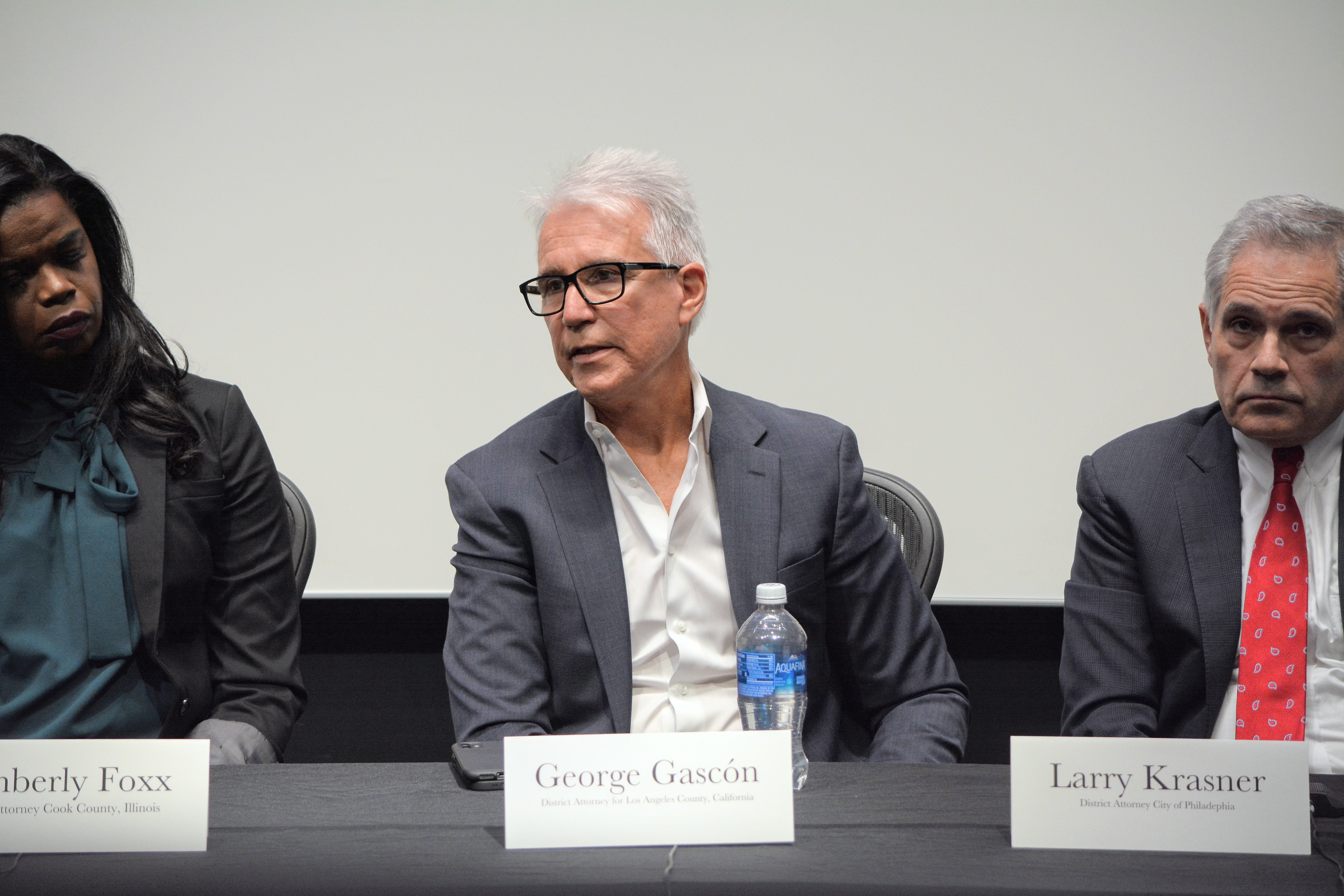A panel of elected district attorneys, including Chicago’s Kimberly Foxx, Los Angeles’ George Gascón, and Philadelphia’s Larry Krasner J.D. ’87, spoke at Stanford Law School (SLS) on Tuesday about their respective career paths in the legal system, common challenges faced as a prosecutor and what motivates them to reform the criminal justice system.
Moderated by law professor Jennifer Chacón ’94, a crowd of roughly 150 law students, undergraduates and community members gathered to gain insight into the role of an elected district attorney.
Chacón said in an interview with The Daily that she hoped students walked away from the panel with “a better sense of what motivates people to run for district attorney and what skills they bring into their line of work.”
The event, organized by SLS, the Stanford Criminal Justice Center and the John and Terry Levin Center for Public Service and Public Interest Law, focused on the nuances of the prosecutorial office, including progressive-leaning approaches to the criminal justice system. Among the attendees in the audience was SLS Interim Dean Robert Weisberg J.D. ’79, who assumed the role following the recent promotion of Jenny Martinez to University provost.
Gascón, who campaigned in Los Angeles County on substantial criminal justice reform in 2020 and has weathered multiple attempts at recall elections during his term, spoke about what he sees as the failures of the prison system and the need to help the incarcerated.
“There was a need to alter the DNA of the office,” Gascón said. “We are bringing the office into the 21st century.”
Gascón distinguished the relationship between police and prosecutors and spoke to the importance of accountability, truth and transparency in his line of work.
Foxx, who is the first African-American woman to manage Cook County’s DA office — the second-largest prosecutorial office in the U.S. — frequently referenced her childhood and growing up in Chicago as a strong influence in growing her passion for the law. She recounted overcoming many systemic barriers throughout her life and defended her work in reforming the American criminal justice system, which she said “doesn’t address true issues.”
Krasner, who brought the crowd to laughter multiple times, spoke to the unprecedented results of their elections.
“You are looking at the three waterloos of district attorneys. [We] were supposed to lose,” Krasner said. “Except, there is no waterloo. This is a national grassroots movement.”
Krasner spoke on the catastrophes of the incarceration system and the methods of intervention in his office. Krasner was impeached in 2022 by the Pennsylvania House of Representatives following allegations of not performing the duties of his job.
The relationship between the media and prosecutors was frequently discussed among the panel. Krasner described his as “symbiotic,” with a “need to be proactive with the press.”
Foxx, who made international headlines in 2019 for dropping a case against actor Jussie Smollett (in which Smollett falsely claimed that he was the victim of a hate crime), noted the difficulties of working with the press and media during that time “because [the system] couldn’t just say it was trivial with Jussie Smollett.”
Krasner described his “cost-benefit” methodology behind prosecution, where his office identifies the economic and societal benefits or costs behind prosecuting individuals. Foxx and Gascón alluded to similar methods of restorative justice.
“We must be honest when we discover the thing that we’ve been doing is not what we’ve been saying — so let’s do something else,” Foxx said.
